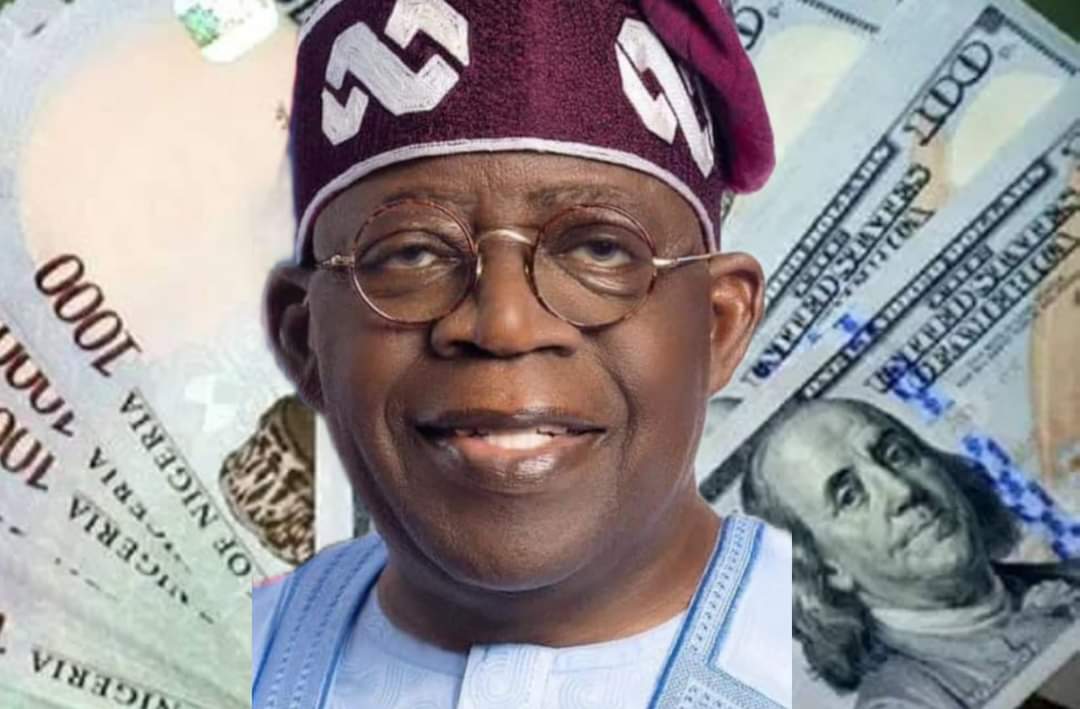The Federal Government may have concluded plans to revisit the Naira redenomination policy that failed to fly in 2007, during the Umar Musa Yar’Adua administration. Saturday Telegraph gathered that the aim of redenominating naira is part of the rescue measures to save the national currency from persistent slide. In the last one month, the Naira had been facing its worst fall against the dollar and other international currencies like United Kingdom’s Pound Sterling and the Euro.
Euro.

Information available to Saturday Telegraph shows that the economic team of the Bola Tinubu administration is reconsidering the idea as a way out of the present economic logjam, after different options embarked upon failed.
Sources close to the corridors of power informed that, in order to arrest the free fall of the Naira against the dollar, the team is thinking of placing the redenomination option on the table, among other alternatives.
One of the sources claimed that, though the President has not been given the option as an alternative, some members of the team are excited ahead of the meeting with the president, believing that they have valid points to convince Tinubu. “They are definitely going ahead, they are going to table it before the president, they have concluded their plans, they only need to have a perfect delivery strategy to convince him”, he said.
When probed on the veracity of the claim, he was emphatic that no fewer than three members of the economic team are in support of the idea. “I have been discussing with them and I know that they will do it, they are bent on seeing it through.
I just hope the president gives them audience”. The Central Bank of Nigeria had earlier tried the option but could not see it through because the Ministry of Finance and the business community kicked against it.
2007 policy
According to information monitored on the CBN website, the ‘Strategic Agenda for the Naira’ announced by the Central Bank of Nigeria on August 14, 2007 generated a healthy national debate.
The CBN had announced a 4-point agenda designed to make the Naira the “Reference Currency in Africa”, as part of the Financial System Strategy 2020 (FSS2020), which included; Currency Re-Denomination, Adoption of Inflation-Targeting Framework for the conduct of monetary policy, sharing part of the Federation Account funds in US Dollars to Deepen the Forex Market and for Liquidity Management, and Current Account liberalization/convertibility and accession to Article VIII of the IMF.
The CBN had said that listed the advantages to include strengthen public confidence in the Naira, make for easier conversion to other major currencies, reverse tendency for currency substitution, eliminate higher denomination notes with lower purchasing power, reduce the cost of production, distribution and processing of currency, promote the usage of coins and thus a more efficient pricing and payments system, promote the availability of cleaner notes, deepen the Forex market, ensure more effective liquidity management and monetary policy, convertibility of the Naira and hence greater confidence in the national economy and lead to greater in-flow of foreign investment, and position the Naira to become the ‘Reference currency’ in Africa.
Experts warn against revisiting policy
However, some economists and finance experts have cautioned the CBN against revisiting the policy while asking the Federal Government to jettison the idea. Implementing the decision, according to the experts is like hitting the last nail into coffin. Advising against the plan, Prof. Uche Uwaleke said it will be an ill-timed decision, considering that CBN initiated a currency re-design last year which is still subsisting.
He added that currency redenomination exercise is no longer a popular option in many economies. Uwaleke said: “Another currency reform by way of redenominating the Naira will be ill-timed considering that the CBN is still implementing the currency redesign started last year. The only benefit of currency redenomination as the experience of Ghana has shown is the positive psychological effect that comes with currency illusion.
“Beyond that, it’s akin to painting the exterior of a building while the interior is filthy and uninhabitable. It doesn’t in itself address the problem of rising inflation or the depreciation of the domestic currency”.
Rather than embark on such a monumental project at this time with implications for accounting and record keeping, especially on the part of businesses, the professor of Capital market advised that efforts should be geared towards addressing the root causes of declining purchasing power of the Naira. Another Expert in finance sector, Gabriel Idakolo said Naira re-denomination is certainly not an effective way to revamp national currency slide.
He recalled Ghana experience that led to the country’s currency being the worst perform- ing currency in Africa at the time. Idakolo said: “Naira redenomination is certainly not an effective tool to save the Naira presently due to our weak economy, high inflation and very high unemployment and multi-dimensional poverty. Ghana re-denominated their currency (Cedi) some of years ago and it was credited that Ghana’s currency is the worst performing currency in 2022 in sub-Saharan Africa.
This was as a result of the present problems I mentioned plaguing Nigeria. “The major policies that can stem the free fall of the Naira is injection of fresh foreign exchange into the economy, aggressive increase in government revenues, serious and effective policy implementation aimed at improving our ease of doing business and determined intervention by government is key areas of our economy like manufacturing, power, SMEs and services sector. The policy initiatives by the Bola Tinubu government in tackling the economy can strengthen the Naira if properly implemented.”






